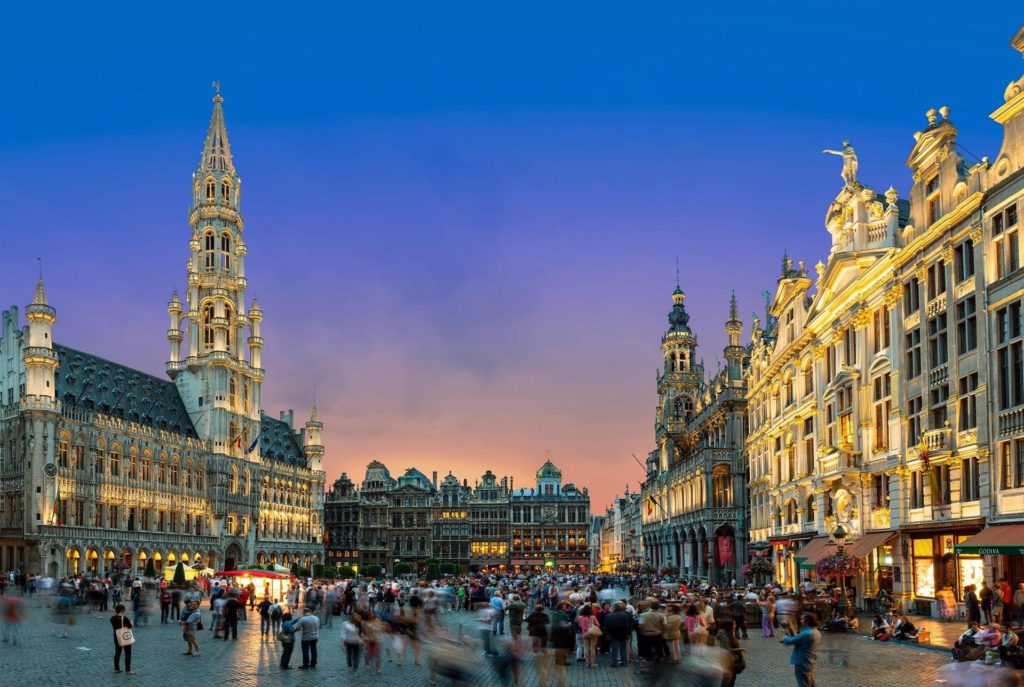Brussels and Paris to establish largely car-free city centres
Brussels and Paris have revealed their plans to establish largely car-free city centres. These are bold moves, and others must begin to follow their lead.
Brussels and Paris are proving their commitment to leading the urban mobility transformation. These European capitals, both POLIS members, just announced their new plans to establish essentially car-free centres in favour of more sustainable transport modes, using a citizen-focus approach.
The Belgian capital will introduce a low traffic zone within its inner ring road, while the French one will restrict private vehicles from a "serene zone" in its historic centre; tackling the different issues associated with inner-city traffic congestion, such as air pollution, road safety, and mental stress.
Brussels
The new traffic plan of Brussels, ''Good Move Pentagon", which comes into effect on 16 August this year, will consist of one-way streets and limited-access zones to restrict car use through the centre.
 The objective is to redirect traffic away from the neighbourhood. Other concrete measures include improved bicycle infrastructure and parking, and a revamped bus, metro, and tram plan for STIB, among others.
The objective is to redirect traffic away from the neighbourhood. Other concrete measures include improved bicycle infrastructure and parking, and a revamped bus, metro, and tram plan for STIB, among others.
This plan follows the so-called STOP principle, which creates a hierarchy for means of transport: prioritising pedestrians, bicycles, public transport and cars for the people who need them. It strives to make the city centre more accessible, healthier, and safer while working with local residents to deliver mobility frameworks that work for them.
''The current traffic situation entails several road safety and pollution issues. We want to create an accessible and attractive city for everyone; we want to give the city back to the people'', stated Bart Dhondt, the council's Alderman for Mobility.
Paris
The City of Lights will also zone off much of its centre (1st-4th arrondissements), banning private vehicles to eliminate transit traffic.
 This measure builds on existing efforts from the city to transform itself into a bike-friendly space.
This measure builds on existing efforts from the city to transform itself into a bike-friendly space.
This traffic-free zone will take effect in 2024 before Paris hosts the Summer Olympics that year.
Through-traffic will be prohibited in favour of pedestrians, bicycles, public transport, and specific categories of allowed vehicles, such as tradespeople. The goal is to reduce traffic in the heart of Paris by at least half.
The aim is to "reduce the volume and speed of motorized vehicles in the area to facilitate and secure travel on foot and by bicycle." said David Belliard, Deputy Mayor of Paris in charge of transforming public space and mobility.
Want to find out more about how cities are decarbonising mobility? Check out POLIS' Clean Vehicles & Air Quality Working Group
Through the Clean Vehicles & Air Quality Working Group, POLIS members share best practices and exchange knowledge on reducing transport-related emissions and accelerating the adoption of clean vehicles.
Cleaner air requires stricter measurements of all types of vehicle exhausts as well as stricter regulations. Together with our members we are bringing this work forward by investigating policy frameworks and exploring new technologies that could improve air quality.
Find out more HERE.
In case you have any questions, do not hesitate to contact Isobel Duxfield, Communications and Membership Officer at POLIS.


